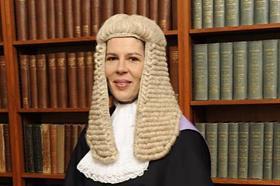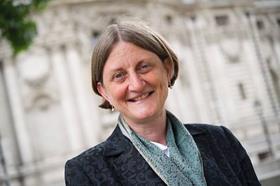The High Court, predominantly populated by barristers, could be showing promising signs of diversity after the judiciary announced that three solicitors have been appointed to the bench.
Her Honour Judge Mary Stacey, Rowena Collins Rice and Adam Johnson QC are among eight appointments announced last Friday and today.

HHJ Stacey was admitted to the roll in 1987 and is a former partner at Thompsons Solicitors. She was appointed as a salaried employment judge in 2003, a recorder in 2006, and a circuit judge of the Midland Circuit in 2014. She became a visiting judge at the Employment Appeal Tribunal in 2017 and appointed a deputy High Court judge in 2018.
Collins Rice studied and taught law at Oxford University before joining the civil service fast stream in 1985. After working in the Home Office, she applied for the Government Legal Service’s legal trainee scheme and qualified as a solicitor in 1995. She was appointed a legal director at HM Revenue & Customs in 2005 and became legal adviser to the Ministry of Justice in 2007, before joining the ministry’s executive board the following year as director-general (democracy, constitution and law) and chief legal officer.

In 2010 she became director-general, constitution, to deputy prime minister Nick Clegg. The following year she was appointed secretary to the Leveson Inquiry. She has been director-general of the Attorney General’s Office and legal secretary to the law officers since 2013. She became a deputy High Court judge in 2017.
Johnson, the first person in his family to attend university, joined Herbert Smith as an articled clerk in 1988 and qualified in 1990. He acted in the litigation arising out of RBS's 2008 rights issue. He has been vice-chair of the Herbert Smith Freehills Pro Bono and Citizenship Council for several years, and is a trustee of Pro Bono Community, a charity that provides legal training to law centre volunteers. He was appointed Queen's Counsel in 2017 and a deputy High Court judge in 2018.

The number of solicitors within the senior ranks of the judiciary has been a longstanding concern within the profession. Judicial diversity statistics published in July 2019 show that 4% of High Court judges were non-barristers.
Justice, an influential thinktank which has conducted extensive work on judicial diversity, said solicitors struggle to be appointed a recorder or deputy high court judge - two 'key feeder roles' to senior appointments. Only six solicitors and two barristers who originally qualified as solicitors were among 24 deputy high court judges announced last November.
The Judicial Appointments Commission and Judicial Office are expected to publish a new, combined statistics report this month. Legal sector diversity data will also be published by the Judicial Diversity Forum to provide broader context to the data.



























5 Readers' comments